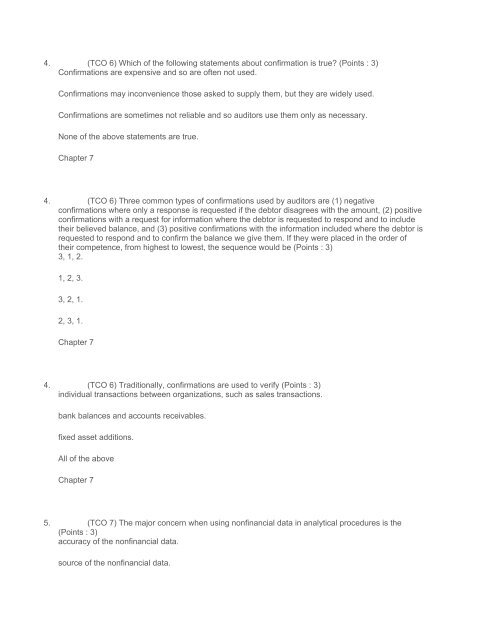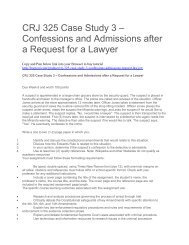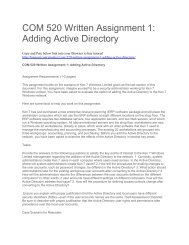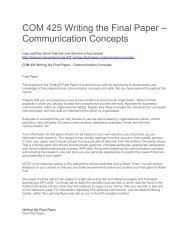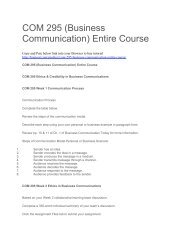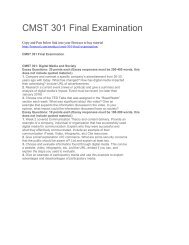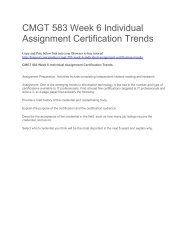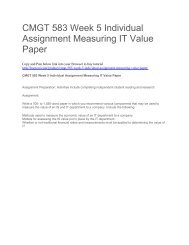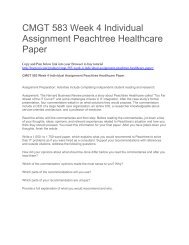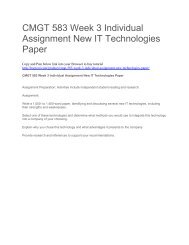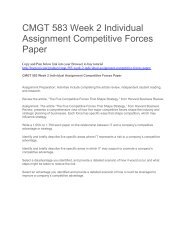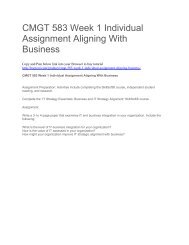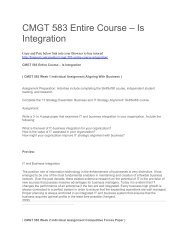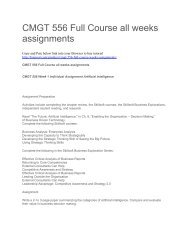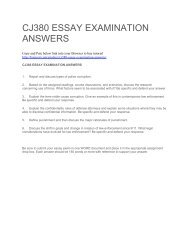DeVry ACCT 444 Week 1-5 Complete Quizzes
Create successful ePaper yourself
Turn your PDF publications into a flip-book with our unique Google optimized e-Paper software.
4. (TCO 6) Which of the following statements about confirmation is true? (Points : 3)<br />
Confirmations are expensive and so are often not used.<br />
Confirmations may inconvenience those asked to supply them, but they are widely used.<br />
Confirmations are sometimes not reliable and so auditors use them only as necessary.<br />
None of the above statements are true.<br />
Chapter 7<br />
4. (TCO 6) Three common types of confirmations used by auditors are (1) negative<br />
confirmations where only a response is requested if the debtor disagrees with the amount, (2) positive<br />
confirmations with a request for information where the debtor is requested to respond and to include<br />
their believed balance, and (3) positive confirmations with the information included where the debtor is<br />
requested to respond and to confirm the balance we give them. If they were placed in the order of<br />
their competence, from highest to lowest, the sequence would be (Points : 3)<br />
3, 1, 2.<br />
1, 2, 3.<br />
3, 2, 1.<br />
2, 3, 1.<br />
Chapter 7<br />
4. (TCO 6) Traditionally, confirmations are used to verify (Points : 3)<br />
individual transactions between organizations, such as sales transactions.<br />
bank balances and accounts receivables.<br />
fixed asset additions.<br />
All of the above<br />
Chapter 7<br />
5. (TCO 7) The major concern when using nonfinancial data in analytical procedures is the<br />
(Points : 3)<br />
accuracy of the nonfinancial data.<br />
source of the nonfinancial data.


